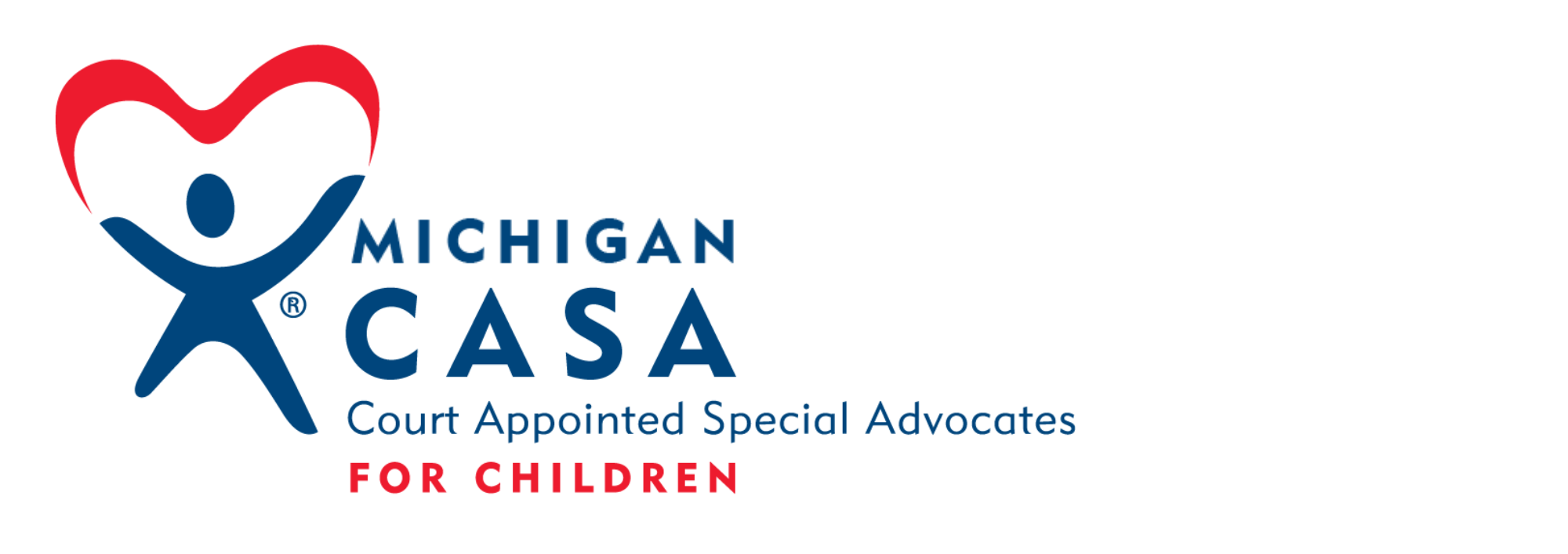Meet the Speakers

Andrew Bridge

Gaelin Elmore

Ericka Brown

Shonethia Perkins-Ragland

Julie Harkema, LMSW

Jessica Sweet

Dr. Tana Bridge

Apryl Pooley, PhD

Mary Finedore
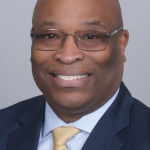
Sean Fisher Sr., Ed.S., PHR, HRS
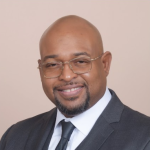
Horace E. Stone Jr., M.Ed., SRPC
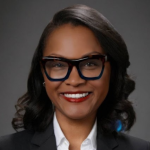
Contessa S. Brady M.Ed.

Senator Sylvia Santana
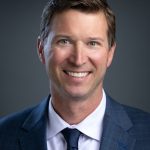
Dave Hildenbrand

Stacey Goodson

Dr. Crystallee Crain

Aliza Durak
Keynotes
Lighting the Way: CASA and a Brighter Future for Children and Families (Monday - Ballroom)
Presented by Andrew Bridge
Trauma profoundly shapes a child’s development, limiting their future opportunities and ability to thrive. Early, family-centered support can prevent further harm and lay the groundwork for healing. But when children do enter foster care, consistent, caring adults become essential to their safety and long-term well-being. This presentation will explore the lasting impact of trauma, the importance of supporting families, and the critical role that Court Appointed Special Advocates (CASAs) play in ensuring each child’s needs are fully understood and addressed by the court and child welfare systems.
Belonging Begins with Us (Tuesday - Ballroom)
Presented by Gaelin Elmore
The adage “failing to plan is planning to fail” applies to your work and its relationship with belonging. Ultimately, belonging unlocks the best that each and every human has to offer. That includes your leadership, frontline staff, and especially your clients and community. We will utilize the 4-directional belonging framework to guide the conversation, as well as additional tools, research, and science that lead to a meaningful prioritization and planning of belonging so that you can hit your goals and stay on mission!
Breakout & Plenary Sessions
"The Power of" Advocacy (Monday - Grand Ballroom)
Presented by Senator Sylvia Santana & Dave Hildenbrand
Cultural Humility in Practice (Monday Plenary - Grand Ballroom)
Presented by Dr. Crystalee Crain
Dr Crystallee Crain (she/her) invites you to attend her foundational training Cultural Humility: People, Community, & Practice Workshop (CHnP 101). This two-part experience introduces participants to the framework of cultural humility, inspired by the work of Josepha Campinha-Bacote, Melanie Tervalon, and Jann Murray-García. This evidence-based approach emphasizes the importance of co-creating dynamic and generative relationships with individuals from diverse cultural backgrounds and different cultural experiences from your own. This could be in regards to a person’s race, ethnicity, class, education level, gender expression, sexual orientation, religion, mental health capacities or disability status, political affiliations, or regional association.
During this workshop Dr. Crain will work with participants to identify gaps in understanding, capacity for humility and emotional responsiveness as it relates to their professional practice. Through a participatory framed experience, participants will be able to heighten their efficacy in their work by understanding how their biases, perceptions, and worldview impact their service to the community.
Caring for Self While Caring for Others: Stress and Vicarious Trauma (Monday Breakout - MCC1)
Presented by Dr. Tana Bridge
Serving youth and families who are engaged with the Child Welfare System is hard – physically and emotionally. Approaching stress and prioritizing wellness must be intentional if one is to improve personal wellbeing, ensure compassionate care to those we serve. In this session participants will gain an increased understanding of the biology of stress and vicarious trauma. Further skills in decreasing stress and advancing well-being will be explored.
Childhood Trauma and the Developing Brain (Monday Breakout - MCC2)
Presented by Apryl Pooley, PhD.
Belonging Begins with Us: Combating Internalized Queerphobia with Community and the Development of Self (Monday Breakout - MCC4)
Presented by Mary Finedore
When thinking about what it means to belong, we often think about being part of a community, being accepted by others, being loved by others. However, it’s not so often that we discuss what it means to develop a sense of self, to accept ourself, to belong to ourself. To properly support LGBTQ+ people and youth, one critical topic that requires much more attention the experience of internalized homophobia, transphobia, and/or queerphobia, what it can look like, and how it affects almost every member of the LGBTQ+ community in some shape or form. This workshop will be dedicated to addressing those ideas by providing a case study to analyze, active large group and small group discussions, and providing some tools on how to help your young person navigate the struggle of internalized homophobia, transphobia, and/or queerphobia as it most relates to them.
Why Children Run (Tuesday Breakout - MCC1)
Presented by Andrew Bridge
This session explores the urgent and often overlooked issue of children running from foster care placements. It examines why youth choose to leave, the scope of the problem, and which children are most at risk. Centering the voices of children with lived experience, the session highlights what they faced while missing and the unique dangers they encountered. Participants will gain practical guidance on how to respond when a child goes missing, including steps for recovery and reintegration. The session also offers strategies for building trust with returning youth and improving case planning to prevent future runaways. Attendees will leave with tools to better understand and support vulnerable children—and to help reduce the risk that they’ll feel the need to run again.
Advocating For Older Youth (Tuesday Breakout - MCC2)
Presented by Shonethia Perkins-Ragland & Ericka Brown
This session will highlight the challenges older youth face as they prepare to transition out of foster care, and the wide range of resources available to support them (many of which are often underutilized or unknown). Ericka will provide an overview of key programs and funding opportunities that CASA volunteers can advocate for to ensure their youth access housing, education, life skills support and more. In addition, Ericka and Shonethia will share practical strategies and tips for building trust, engaging meaningfully, and relating to older youth.
Healing Systems: Community Insights to Transform Health Solutions for Youth in Foster Care (Tuesday Breakout - MCC3)
Presented by Madeline Krawciw
This presentation shares findings from a comprehensive community assessment focused on improving healthcare access and coordination for youth in foster care. Aligned with health policy as a priority to enhance pediatric healthcare access and quality, the project employed a mixed-methods approach, including literature and policy reviews, stakeholder input, community surveys, and interviews, to examine disparities in physical and mental healthcare and system navigation. Quantitative and qualitative data revealed that foster parents, youth in foster care, and families of origin report significantly greater barriers to care compared to professional groups. Access to integrated care and shared medical histories was strongly associated with higher satisfaction and caregiver confidence. Stakeholders emphasized the need for systems-level change, including culturally responsive services and cross-sector collaboration to address fragmented care. These findings support a commitment to equitable, family-centered pediatric care and inform actionable strategies for practitioners to lead improvements in practice, policy, and interprofessional collaboration.
Building Safety with LGBTQ+ Youth in Care (Tuesday Breakout - MCC4)
Presented by Aliza Durack
This session will provide a detailed framework of SOGIE*, sexual orientation, gender identity, and gender expression, and engage participants in implementing best practices in supporting youth with diverse SOGIE identities. The session will provide space for processing individual and professional needs when confronting difficult topics and include review of tools to help staff support diverse SOGIE youth.
Practical Strategies for Staying Safe While Serving Others (Tuesday Breakout - MCC1)
Presented by Julie Harkema
This interactive presentation explores the essential topic of safety in social work practice, equipping participants with practical tools and strategies for working effectively and securely with clients in a variety of settings. Designed for volunteers and professionals, the session covers risk assessment, situational awareness, boundary setting, and de-escalation techniques. Through real-life scenarios and group discussions, attendees will actively engage in identifying potential risks and developing personalized safety plans. The session emphasizes the importance of self-awareness, communication, and agency support in promoting a culture of safety while maintaining strong, ethical client relationships.
Navigating the Landscape of Child Welfare (Tuesday Breakout - MCC2)
Presented by Jessica Sweet
This presentation provides an overview of the child welfare system in Michigan, focusing on the roles and responsibilities of key stakeholders. It highlights the processes by which child abuse and neglect reports are investigated, how prevention efforts are being utilized and on the importance of collaboration between all members of the team. The presentation reviews foster care placement procedures, including the criteria for placement, assessment of the child’s needs, and the decision-making process. It also discusses the concept of permanency, explaining the legal and social pathways through which children may achieve permanent, stable homes, whether through reunification, adoption, or guardianship. Participants will gain a clearer understanding of their role in supporting children and families throughout the process, with specific focus on trauma-informed care and the emotional well-being of children in foster care. The presentation aims to equip participants with the knowledge necessary to effectively collaborate within this system and advocate for the best interests of children and their families.
Strategies for Giving Voice and Supporting Black Boys in K-12 Institutions (Tuesday Breakout - MCC4)
Presented by Sean Fisher Sr., Ed.S., PHR, HRS; Horace E. Stone Jr., M.Ed., SRPC; and Contessa S. Brady M.Ed.
This presentation aims to equip CASA professionals with strategies for uplifting and empowering Black boys and young men within K-12 educational environments. The focus is on providing these students with the essential tools, knowledge, and support necessary for personal, academic, and social success. By integrating culturally relevant practices with a solid foundation in Restorative Practices, the program establishes a safe and inclusive space where students are encouraged to engage in self-reflection, personal growth, and leadership development.
At its foundation, this presentation advocates for the cultivation of healthy masculinity while challenging the harmful stereotypes and societal pressures that frequently distort the identities of Black boys. Through open dialogues and restorative circles, students examine the essence of their authentic selves, learn to express emotions in constructive ways, and foster positive and respectful relationships. These practices are instrumental in enhancing emotional well-being and nurturing a sense of community and trust among participants.
e program also emphasizes the development of resilience and goal-setting competencies, helping students cultivate the confidence and mindset necessary to overcome adversity. By learning to establish meaningful goals and navigate challenges, students acquire a sense of direction and purpose. Group activities, journaling exercises, and peer support initiatives foster the development of a growth mindset and the determination to achieve success despite obstacles. Furthermore, the presentation offers strategies specifically designed to support Black boys in special populations, including English language learners and students with 504 plans or Individualized Education Programs (IEPs).
Additionally, the presentation provides strategies for developing leadership skills and fostering restorative mindsets in young Black boys across elementary and secondary educational settings. Leadership development serves as a critical component in empowering students to identify their unique strengths and leverage them to impact their peers positively. Restorative Practices impart essential skills such as accountability, active listening, and effective communication, all of which are crucial for becoming responsible leaders within their schools and communities. Students engage in college and career readiness activities, which include exploring postsecondary options, developing time management and financial literacy skills, and connecting with mentors who share similar backgrounds and aspirations. Regardless of their ambitions—whether attending college, pursuing vocational training, entrepreneurship, or other career pathways—students will depart from the program with a clearer vision of their future and a roadmap for achieving their goals.
Restorative practices underpin all aspects of the program. Through the use of circles, reflective exercises, and relationship-centered strategies, the program fosters a sense of community, facilitates constructive conflict resolution, and ensures that every student is heard, valued, and supported. These practices promote not only individual growth but also a collective sense of responsibility and belonging.
Overall, this presentation develops a holistic approach to cultivating confident, capable, and community-oriented young Black men. By integrating identity development, leadership cultivation, resilience training, and future planning within a restorative framework, the program empowers students to take ownership of their narratives and to lead with purpose.
Triple Threat: Teenagers, Talking and Trauma (Tuesday Breakout - MCC3)
Presented by Stacey Goodson
Working with a population such as teenagers that have experienced trauma, provides unique challenges. This workshop will be delivered in an engaging way and helps the participants understand how trauma, poverty and mental illness affects children and their perception of the world. Additionally, this workshop will help the participants gain knowledge on ways to connect with youth and teens that have experienced trauma.
